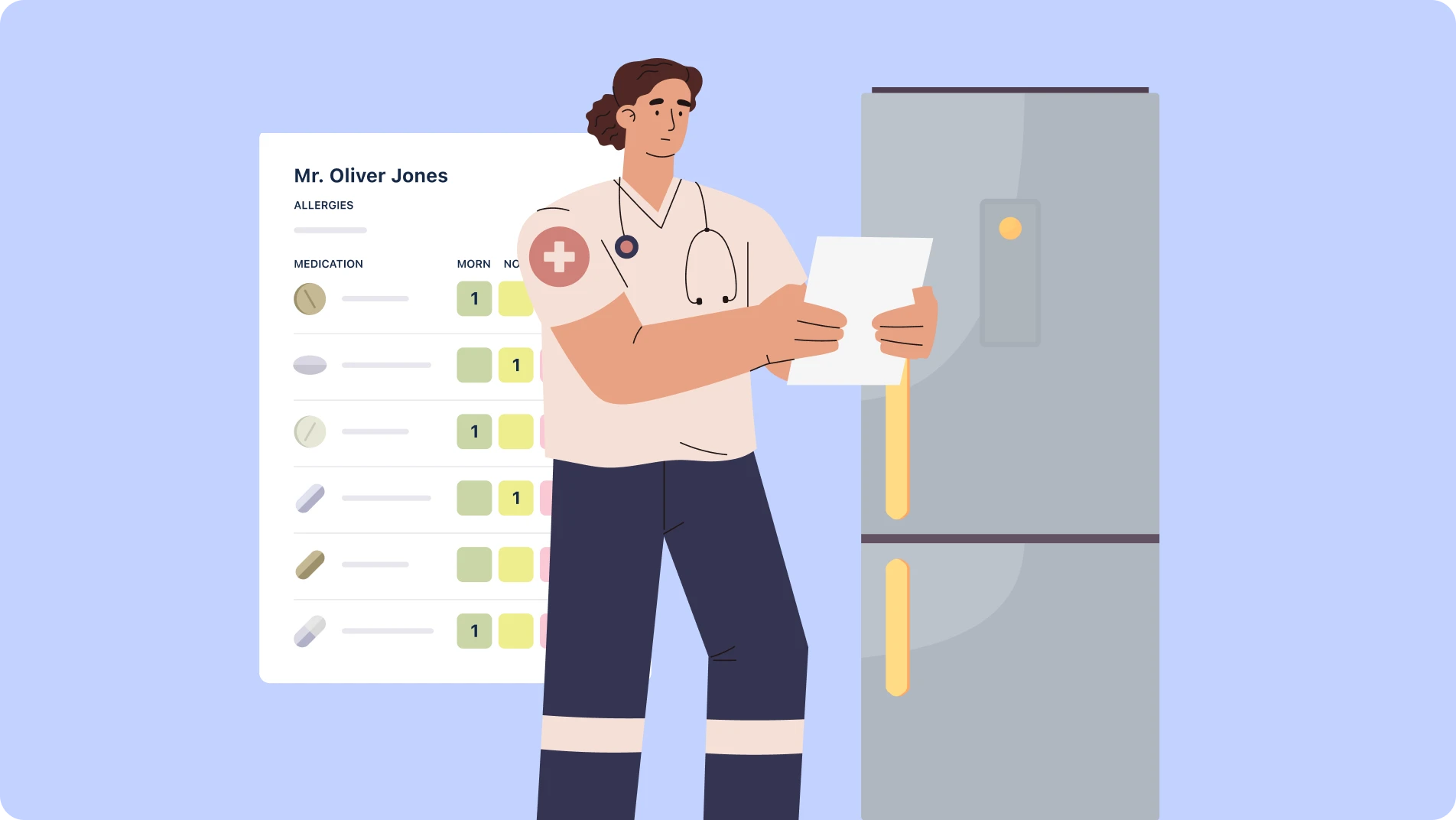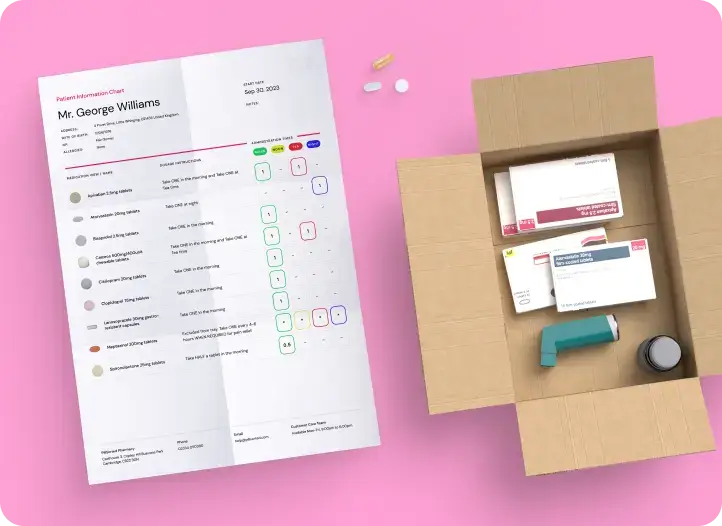Why Put Your Medicine Chart On Your Fridge?

When a medical emergency strikes, every second counts. Paramedics arriving on the scene must gather crucial information quickly, often under chaotic circumstances. They need to know a patient’s basic health details, but sometimes, the patient is incapacitated and unable to provide this information. In these critical moments, a small, preemptive action on your part can make a huge difference: keeping a medical information chart, such as the one you get with your prescription deliveries from PillSorted, on your refrigerator can make a huge difference.
Read on to learn more about why you should put our medicine chart on your fridge and some additional lifesaving measures.
In this post:
- Why It Matters
- How to Get One
- Where to Place It
- What Else You Should Do & Backup
- Medicine Chart Dos & Don’ts
- Main Takeaways
Why it matters
Seconds matter, especially during heart attacks or strokes, where brain damage can occur in as little as five minutes if deprived of oxygen. When paramedics enter a home, they scan the fridge or bathroom cabinet for medications and search wallets or purses for identification. However, this process eats up time. Your medicine chart on your refrigerator buys you valuable, potentially lifesaving, time.
How to get one
At PillSorted, we include an updated medicine chart with your monthly prescription delivery. If you use our service and aren’t receiving medicine charts, simply email us a request.
Where to place it
You can place your medicine chart anywhere that a paramedic might think to look if you are unconscious on the floor. The refrigerator is a great place because it is easy to find for the paramedic, you, and anyone who cares for you. Often, a relative, overwhelmed by the situation, might hand paramedics a box of medications. A preprinted sheet provides clear and concise information, allowing paramedics to act swiftly and accurately.
What else you should do & backup
To your medicine chart, it is a good idea to also add this essential information:
- Date of birth
- Medical history
- Emergency contact number
- Allergies
- Blood type
In addition to your physical chart on your fridge, write down your essential medical information on a small piece of paper or Post-it note and put it in your wallet or purse. Athletes should also be sure to have this information handy in their gym bags.
If you have an iPhone or Android device, set up your medical ID. This allows emergency medical workers to access your information without needing a passcode. Taking a few minutes to input this data on your phone ensures that your health details are always at hand, even if your physical chart is inaccessible. These small efforts could be lifesavers.
Medicine chart dos & don’ts
| Do | Don’t |
|---|---|
| Keep your medicine chart updated. | Don’t rely solely on memory. |
| Place your medicine chart where it is visible and easy to find. | Don’t place it in drawers or buried in a stack of other papers. |
| Include essential information. | Don’t forget to update your chart. |
| Have backup copies in your wallet or purse. | Don’t exclude important information, such as allergies. |
| Use digital medical IDS on your phone. | Don’t forget to inform family members and carers about the location of your chart. |
Main takeaways
- A readily accessible medicine chart can save valuable time in emergencies.
- Place the chart on your refrigerator for quick visibility to paramedics.
- Include essential details like medical history, allergies, and emergency contacts.
- Keep a backup in your wallet and set up a digital medical ID on your phone.
References
Lacerte, M. et al. (2023). Hypoxic Brain Injury
DeSai, C et al. (2023). Cerebral Ischemia
PillSorted
PillSorted is a full service pharmacy that delivers trusted pharmacy products, over-the counter medications, and the prescriptions your doctor recommends, directly to your door. Your PillSorted pharmacist is happy to answer your questions about weight loss and potential treatment options at 0333 4050380 or help@pillsorted.com.

All third-party trademarks (including logos and icons) referenced by PillSorted remain the property of their respective owners. Unless specifically identified as such, PillSorted’s use of third party trademarks does not indicate or imply any relationship, sponsorship or endorsement between PillSorted and the owners of these trademarks.
































